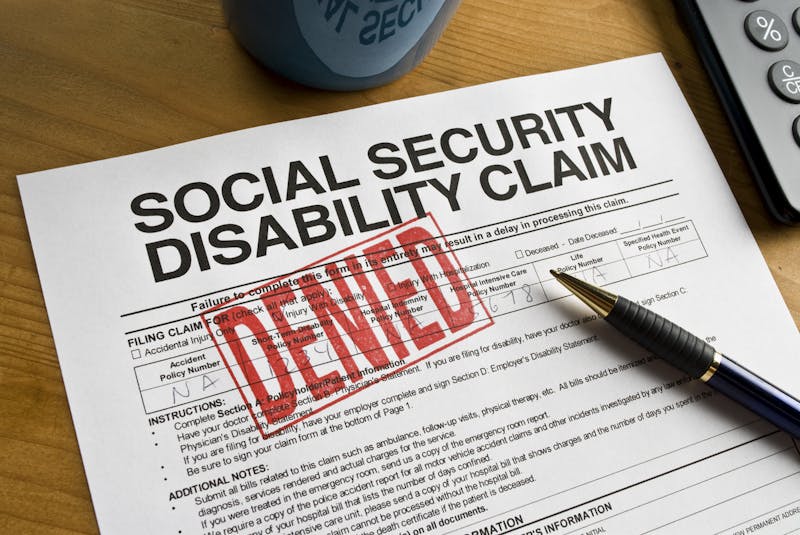
If your Social Security Disability (SSD) claim has been denied, you’re not alone. Thousands of people face this frustrating reality each year. But here’s the good news: denial doesn’t mean the end of the road. At Carlson Meissner Hayslett, we specialize in helping clients nationwide navigate the appeals process and secure the benefits they deserve.
This blog will walk you through the essential steps of appealing a denied SSD claim and improve your chances of success.
Step 1: Understand Why Your Claim Was Denied
The first step in appealing your denied SSD claim is understanding the reason for the denial. Common reasons for denial include insufficient medical records or lack of proof that your condition is severe enough to prevent you from working, failure to follow your doctor’s recommended treatment, earning above the income limit, or errors in your application. Review the denial letter from the SSA; it will outline the specific reasons your claim was denied.
Step 2: File an Appeal Before the Deadline
You have 60 days from the date you receive your denial letter to file an appeal. Missing this deadline could mean starting the application process all over again.
There are four levels of appeal. The first level is called reconsideration, and this involves a different SSA representative reviewing your case. You are allowed to submit additional evidence to strengthen your claim.
The second level involves a hearing before an Administrative Law Judge. If your reconsideration is denied, you can request a hearing with a judge who specializes in SSD cases and you can present your case in person or via video conference.
If the Administrative Law Judge denies your claim, you can move on to the third level and ask the Appeals Council to review the decision. The council may overturn the decision, return it to the judge, or deny the review.
As a final step, you can file a lawsuit in federal court if the Appeals Council denies your case.
Step 3: Gather Strong Evidence to Support Your Appeal
The SSA evaluates whether your condition prevents you from working. To strengthen your appeal, you should do the following: update your medical records to ensure they reflect ongoing treatment and detailed information about your condition; ask your doctor to write a detailed statement explaining how your condition limits your ability to work; keep a journal of your symptoms to document how they impact daily activities; and include supporting documents such as work history records, letters from employers, or testimony from family members.
At Carlson Meissner Hayslett, we can help you compile compelling evidence tailored to your case to maximize your chances of success with your claim.
Step 4: Work With an Experienced SSD Attorney
Navigating the SSD appeals process can be overwhelming, especially when dealing with medical records, deadlines, and legal arguments. Hiring a skilled attorney can significantly improve your chances of success.
Why Choose Carlson Meissner Hayslett? First, we have decades of experience and have helped thousands of clients secure SSD benefits across the country. Second, we understand the nuances of SSD law, have a proven track record, and know how to present your case effectively. Finally, we treat every client like family by providing compassionate guidance and personalized support throughout the process.
Step: Stay Persistent
The appeals process can take time, but persistence pays off. Many claims are approved at later stages, particularly during ALJ hearings. Remember, a denial isn’t the end, it’s just the beginning of the fight for the benefits you deserve.
Get Help With Your SSD Appeal Today
Don’t face the Social Security Disability appeals process alone. At Carlson Meissner Hayslett, we’re here to guide you every step of the way. Whether your case involves a reconsideration or a federal court appeal, our dedicated team has the knowledge and experience to help you succeed.
Call us today at 727-306-0273 or visit www.carlsonmeissner.com to schedule your free consultation.
FAQs about SSD Appeals
Q: Can I represent myself in an SSD appeal? Yes, but it is highly recommended to consult with an attorney due to the complexities of the process.
Q: What kind of evidence should I submit with my appeal? Updated medical records, doctor's notes, work history details, and any other relevant documentation supporting your disability claim.
Q: What happens if my appeal is denied at the ALJ level? You can then file a request for review with the Appeals Council.
Q: How can I increase my chances of winning an SSD appeal? Gather strong medical evidence, provide detailed information about your limitations, and consider legal representation.
Q: What is a "substantial gainful activity" (SGA) and why is it important in an SSD appeal? SGA is the amount of income considered too high to qualify for disability benefits, and the SSA will assess your ability to perform work at this level.
Q: How long do I have to file an appeal? You must appeal within 60 days from the date you receive our decision letter.
Q: How long does the appeals process take? The timeline varies, but reconsiderations typically take 3–5 months, and ALJ hearings can take 9–12 months to schedule.
Q: What are my chances of winning on appeal? Statistics show that appeals often succeed, especially at the ALJ level. Working with an attorney increases your chances significantly.
Q: Do I have to pay upfront for an SSD attorney? No. SSD attorneys work on a contingency fee basis, meaning you only pay if we win your case.

